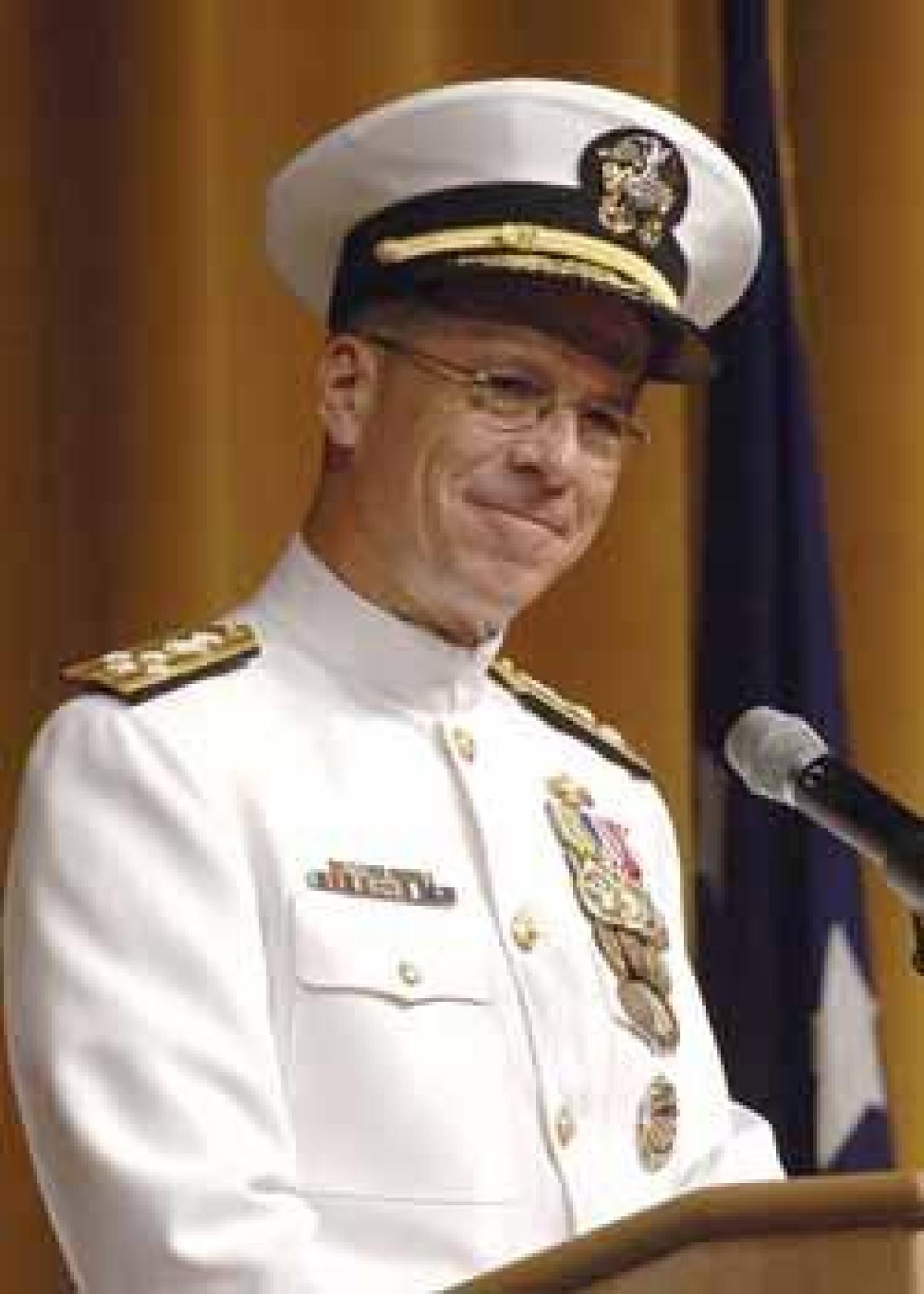This is the maiden voyage for this column and, more important, for the 28th Chief of Naval Operations, Admiral Mike Mullen, who relieved Admiral Vern Clark in late July. As with Admiral Clark, Admiral Mullen is at the center of a Force Ten geopolitical storm that President George W. Bush calls the global war on terror.
All CNOs face daunting challenges from wars to periods of violent peace and excruciating budget and people crises. But Admiral Mullen takes over at a particularly important time with the nation in a fight to the finish against a dangerous and elusive foe—jihadist extremists who have cloaked their political aims in a perverted interpretation of Islam and for whom terror and suicide are as much tools of the trade as are ships, aircraft, and submarines for the U.S. Navy.
So what to do? In sweeping terms, Admiral Mullen faces three overarching dilemmas. The first is strategic—how to make naval forces more relevant to winning the fight against jihadis and those who seek to redefine the international political order while at the same time not degrading the ability to fight and deter major wars when and if called on to do so.
The second is structural—how to field the best yet affordable naval forces for these tasks.
And third and most significantly, how to carry on the legacies of Admiral Clark and former Secretary of the Navy Gordon England regarding leading, motivating, and preparing the Navy's most crucial assets—its officer, enlisted, and civilian personnel—for this dangerous world. These dilemmas are profoundly complicated by the realities that the military alone cannot prevail in this struggle and that there are limits to the amounts of money Congress can and will appropriate for the common defense.
History offers some help. In 1970, a feisty Admiral Bud Zumwalt took the helm as CNO. He immediately instigated Project Sixty, a two-month study to redefine and redesign the Navy. This produced far more than the famous "Z-grams" and allowing sideburns for sailors. Project Sixty made three critical findings. First, it identified four naval missions: sea control, deterrence, power projection, and presence. Second, it concluded that in the face of growing Soviet power, the Navy would opt for a smaller, modern fleet funded by a 40% reduction in total ships. Third, it embraced technology from Harpoon cruise missiles to space to provide the fleet with needed capabilities.
Twelve years later, when Admiral Jim Watkins became CNO, the services were the beneficiaries of the Reagan buildup. Under the dynamic leadership of Secretary John Lehman, the Navy was racing toward "600 ships." Watkins saw his role as creating a maritime strategy that became the template for how the fleet would carry out its operational tasks and for marketing that vision to the key decision-makers at the Pentagon, White House, and on Capitol Hill. For Admiral Mullen, these two predecessors mark the boundaries for his future course.
First, regarding strategy, clearly naval forces are vital in projecting influence ashore with everything from port calls to MK 82 500-pound bombs and cruise missiles to landing Marine expeditionary forces. Understanding how to enhance this influence-building capacity is a first step. And two areas that need greater bolstering are preventative diplomacy and its better-known sibling public diplomacy. Simply put, crises are best handled by prevention. From his last tour as Commander Naval Forces Europe, Admiral Mullen has been doing this in Africa and the Mediterranean. Now, these tasks must be set in a broader strategic context.
Second, despite the efficiencies and savings that England and Clark won for the Navy, few good deeds go unpunished. Those and other monies have been redirected to the ground forces and Iraq. Not only is the Navy financially squeezed, it cannot, as Admiral Clark told Congress, afford the ships it desperately needs. This calls for an innovative and even revolutionary look at how the service buys the sinews for war, including the prospect of reshuffling industry to obtain sufficient numbers of capable ships and aircraft that fit within the budget.
Last, people make the service. Here, the Navy has a great opportunity to motivate and prepare its people for this unsettled world through enhancing their knowledge and learning. It owns one of the best educational systems in the world. The problem is that these assets have never been fully integrated and purposely applied to foster pursuit of greater knowledge and learning among naval personnel. If Admiral Mullen can reshape these great schools and universities accordingly, the benefits will be incalculable. The venerable Lord Nelson got it right. No captain (or CNO) can do very wrong if he brings his ship alongside that of the enemy. CNO, there is a surfeit of enemy hulls out there. Godspeed and good hunting.
Harlan Ullman's latest book is Owls and Eagles—Ending the Flights of Fancy of Hawks, Doves and Neo-Cons. The Naval Institute Press published his previous book, Finishing Business: Ten Steps to Defeat Global Terror, in October.
Firing on the Up Roll: For Mike Mullen, Only Tough Choices
By Harlan Ullman



